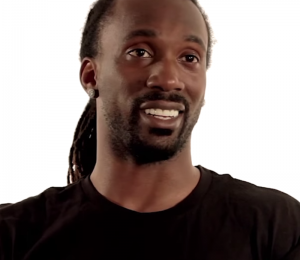
By Sami Awad
November 14, 2016
We live in a violent world. And fear, especially fear of losing what we have gained and achieved (politically, socially, economically, personally, emotionally, religiously, etc.) is the motivation fueling this violence. Fear, both real and manipulated, has become the central lens we use in how we relate to others.
Our identity groups are imbued in fear. We are pushed by many of our leaders to fear other ethnic groups, racial groups, religious groups, political groups, gender groups – anything which is different from us. They tell us that these groups threaten our security and stability; they create conflict, they don’t accept our “way of life,” and they don’t recognize and appreciate our identity. We have come to believe that they are out to destroy us and what we believe systems; they are simply “evil.”
To address this fear, we seek protection and power. Power is needed to defend, or attack others before they attack us. To gain and maintain power we create ideologies, build institutions, pass laws, take over resources, find religious justifications, manipulate, conquer, control, and continuously indoctrinate our identity group in a culture that demonizes and dehumanizes others.
With power comes violence: physical, emotional, mental and spiritual. Even what we call diplomacy and negotiations can be instruments of control and violence. With power comes corruption and the desire for more power and suppression. Fear goes from being a reaction, even sometimes legitimate, to becoming a goal to be maintained.
Trusting, directly addressing fear and its cause, finding alternatives to absolute power and control, respecting the choice of others, honoring their different truths, ending manipulation and incitement, engaging with, sharing honestly, building new frameworks to fit the diverse views, even listening to the other’s narrative are seen as weak, surrendering, naïve, and causes for even more violence, pain, and hurt.
Fear is more than skin deep
This fear does not just exist at the macro/group level. Fear is so embedded in our consciousness; it is even how we relate to those who are close to us, to those whom we even claim to “love.” Similar to identity groups, most of our personal relationships are motivated by fear of losing what we (individually) have created and gained from the relationship itself. Once we begin to sense a threat or shift in our expectations, fear of loss seeps into the relationship.
Fear of losing personal security, stability, peace of mind, love, appreciation, recognition, acceptance of a “way of life,” and the future, become the motivation to maintain the relationship. We move into unhealthy attachments, possessiveness, addiction, creating justifications, manipulating, shaming, victimizing, begging, forcing, even becoming violent physically, emotionally, and mentally.
The correlation between the personal and the collective when it comes to fear is very astounding. Out of fear, many relations, personal or communal, turn from love and peace into conflict and war when we feel that what we want, deserve, and expect is threatened or attacked.
Out of fear, many relations remain intact out of fear that worse violence will take place if an individual or a group demands freedom from the violent relationship; many also fear the unknown. Violence for sure is not the only option when approached by something that triggers fear or violence. We can choose to run away, to surrender, or to obey. These reactions do not necessary end fear and violence.
Love is the antidote to fear and violence
While it is deeply embedded in us, I believe there a way to bring fear and violence to an end and that way is the way of love. The love I am talking about is not the romantic love of films and fairy tales, it is not the manipulative love of control and possessiveness, or the love that is driven by ego and pride.
It is the love that comes from a deep inner personal process of healing and transformation, a love that is unconditional and does not create expectations. It is a love free from fear, even the fear of losing one’s life.
It is the love that passionately seeks to heal the other from their own fear and violence. It is a sacrificial love where I gain nothing in order to see the other living their life in fullness. It is a love that collectively aims at creating a deep and indestructible relationships of mutual trust and respect that become the foundation for real peace and unity.
There is no better definition of love than that which is in the Bible itself. Love that is truly patient and kind. That does not envy or possess and is not linked with pride. It does not dishonor others, is not self-seeking and is not easily angered. It keeps no record of wrongs and does not delight in seeing that which is wrong, but rejoices with the truth. It is a love that always protects, always trusts, always hopes, always perseveres. It is a love that never fails (1 Corinthians 13).
The transformation from fear to love begins with us being aware of the depth of fear in us, to recognize that fear of losing is part of our structures and cultures. Awareness and admittance of fear exposes and makes us vulnerable to others.
While this may be seen as creating a risk, I believe that in this lies the beginning of the empowerment and the liberation process. When I recognize and admit my fear, I open up the possibility to be motivated by something else and seeing a different possibility. Admittance allows us to be truthful, appreciative, and loving to who we are and through that build appreciation, love, and respect in, to, and for others.
Is such a transition from fear to love easy? Probably not. Is it impossible? Definitely not. In this and this alone lies my hope.
My true freedom from violence begins with my freedom and liberation from fear, and my freedom from fear begins when I cultivate the love inside my heart and in my own people.




